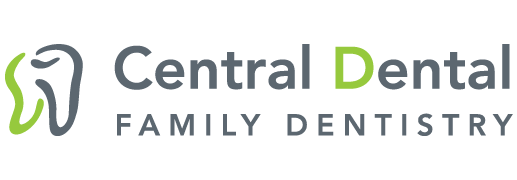

Teeth Clenching and Grinding

Teeth clenching and/or grinding (bruxism) can be the cause of considerable tooth damage. Most people probably grind and clench their teeth from time to time, but occasional teeth grinding does not usually cause harm. When teeth grinding occurs on a regular basis, however, teeth can be damaged and other oral health complications can arise. The exact causes are unclear, although clenching and grinding are often associated with stress or anxiety.
Prolonged teeth clenching/grinding can affect your bite and permanently damage your teeth and temporomandibular joints (TMJ). In addition, teeth clenching/grinding can cause abrasion to the chewing surfaces of your teeth. This abnormal wear and tear will prematurely age and loosen your teeth, and open them to problems such as hypersensitivity (from the small cracks that form, exposing your dentin). Clenching/grinding can also lead to chronic jaw and facial pain, as well as headaches.
There are several treatments available for clenching/grinding. A common therapy involves use of a night guard worn while sleeping. Botox injections represent another form of treatment. Less intrusive, although potentially just as effective treatments involve stress reduction and myofunctional therapy, such as tongue exercises and learning how to properly align your tongue, teeth and lips.
Symptoms of clenching/grinding:
- Your jaw is often sore, or you hear popping sounds when you open and close your mouth.
- Your teeth look abnormally short or worn down.
- You notice small dents in your tongue.
- Your teeth feel sensitive, especially to cold
- Your bite changes, your teeth feel out of alignment
- Your facial muscles are sore
Tips to Reduce Stress that Might be Causing Clenching/Grinding.
- Avoid or cut back on foods and drinks that contain caffeine, such as colas, chocolate, and coffee.
- Avoid alcohol. Grinding tends to intensify after alcohol consumption.
- Do not chew on pencils or pens or anything that is not food. Avoid chewing gum as it allows your jaw muscles to get more used to clenching and makes you more likely to grind your teeth.
- Train yourself not to clench or grind your teeth. If you notice that you clench or grind during the day, position the tip of your tongue between your teeth or on the roof of your palate. This practice trains your jaw muscles to relax.
- Relax your jaw muscles at night by holding a warm washcloth or heat pack against your cheek in front of your earlobe for 10-15 minutes and massage the jaw muscles.
Children and Teeth Grinding
The problem of teeth grinding is not limited to adults. Approximately 15% to 33% of children grind their teeth. Teeth grinding in children is often associated with the emergence of baby teeth and, later, when their permanent teeth come in. Most children stop teeth grinding after these two sets of teeth have come in more fully.
Most commonly, children grind their teeth during sleep rather than during waking hours. No one knows exactly why children grind their teeth but possible causes other than emerging teeth include improperly aligned teeth or irregular contact between upper and lower teeth, illnesses and other medical conditions (such as nutritional deficiencies, pinworm, allergies, endocrine disorders), and psychological factors including anxiety and stress.
Grinding of the baby teeth rarely results in permanent damage, but grinding of permanent teeth can lead to premature wear and tear and ultimately tooth loss. In addition, teeth grinding can cause jaw pain, headaches, wear on the teeth, and TMD. Consult Dr. Koerner if your child’s teeth look worn or if your child complains of tooth sensitivity or pain.
Noninvasive methods to help a child stop grinding his or her teeth include:
- Decreasing a child’s stress, especially just before bed.
- Massage and stretching exercises to relax the muscles.
- Includes plenty of water in child’s diet.
- Monitor a child’s teeth if he or she is a grinder.
No intervention is usually required with preschool-age children. However, older children may need temporary crowns or other methods, such as a night guard, to prevent the grinding.
Our services include:
- Night/bruxing guards
- Botox injection

